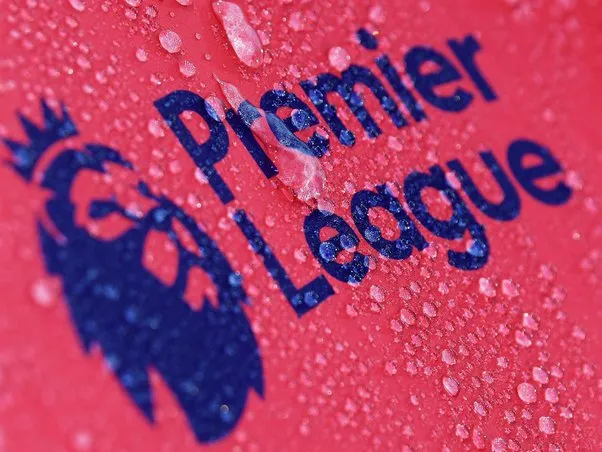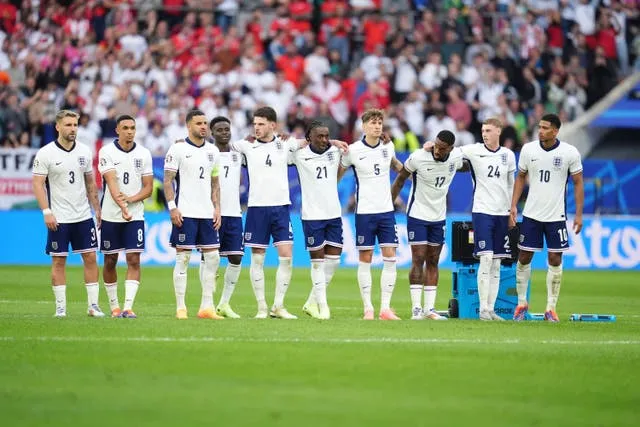The Rise of Premier League A Comprehensive Look at the World’s Most Watched Football League
The Premier League has become the most watched and celebrated football league in the world. Since its inception in 1992, it has captured the imagination of millions of fans worldwide, with its high-octane action, star-studded teams, and unparalleled global reach. This article delves deep into the evolution and significance of the Premier League, exploring its rich history, game-changing moments, and the factors that have contributed to its meteoric rise.
The Inception and Early Years of the Premier League

The Birth of a New Era
The Premier League was born in 1992, as a breakaway from the old Football League First Division. The decision to create a new top-tier league was driven by the desire to increase the league’s commercial potential and provide a more lucrative platform for the top clubs. The inaugural season was a resounding success, with a new broadcast deal and a fresh, dynamic approach to the game.
The Emergence of Dominant Teams
In the early years of the Premier League, a few teams quickly established themselves as the dominant forces. Manchester United, under the leadership of Sir Alex Ferguson, emerged as the first true dynasty, winning the title in the league’s inaugural season and going on to dominate the 1990s. Arsenal and Chelsea also rose to prominence during this era, with their own periods of success.
The Impact of Foreign Ownership
The Premier League’s rise coincided with the influx of foreign ownership in English football. This brought a new level of investment, expertise, and vision to the clubs, transforming the league’s landscape. Clubs like Chelsea and Manchester City experienced unprecedented levels of success after being acquired by wealthy foreign investors, raising the bar for the competition.
The Globalization of the Premier League

Expanding Worldwide Reach
One of the key factors behind the Premier League’s global dominance is its unparalleled worldwide reach. The league’s matches are broadcast in over 200 countries, reaching billions of viewers across the globe. This exposure has helped the Premier League become the most widely followed domestic league in the world, captivating audiences from Asia to Africa and beyond.
Emergence of International Superstars
The influx of international talent has been a hallmark of the Premier League’s globalization. Over the years, the league has attracted some of the greatest players in the world, from Cristiano Ronaldo to Lionel Messi, who have all graced the pitches of the Premier League. This has not only elevated the quality of play but also contributed to the league’s growing global appeal.
Commercial Juggernaut
The Premier League’s global reach has also translated into a commercial juggernaut. The league’s lucrative broadcast deals, sponsorships, and merchandising revenues have made it one of the most financially successful sports leagues in the world. This financial clout has allowed the Premier League to further invest in infrastructure, player recruitment, and marketing, driving its continued growth and dominance.
The Impact of the Premier League on Football Culture

The Rise of the English Football Fan
The Premier League has played a pivotal role in shaping the culture of English football fandom. The league’s intense rivalries, passionate fan bases, and iconic stadiums have created a unique atmosphere that has captivated audiences worldwide. From the thunderous chants at Anfield to the electric atmosphere at Stamford Bridge, the Premier League has become synonymous with the passion and devotion of English football fans.
The Globalization of Football Culture
The Premier League’s global reach has also helped to spread the culture of English football to international audiences. Fans from across the world have embraced the league’s traditions, rituals, and rivalries, creating a truly global football culture. This has led to the emergence of Premier League-focused media outlets, fan communities, and even merchandise sales, further cementing the league’s status as a cultural phenomenon.
The Influence on Football Tactics and Style
The Premier League’s fast-paced, high-intensity style of play has had a significant impact on the tactical and stylistic evolution of the game. Managers and coaches from around the world have studied and implemented the Premier League’s unique approach, leading to the adoption of more aggressive, possession-based, and counter-attacking tactics in other leagues. This influence has transformed the way football is played and perceived globally.
The Premier League’s Impact on Player Development

The Influx of Foreign Talent
The Premier League’s global appeal has attracted some of the finest players from around the world, creating a highly competitive and diverse playing field. This influx of international talent has not only elevated the quality of play but also challenged domestic players to improve their skills and adapt to the league’s demanding standards.
The Rise of English Talent
While the Premier League has become a melting pot of international talent, it has also played a crucial role in the development of English players. The league’s infrastructural investments, youth academies, and the opportunities provided to homegrown talent have resulted in the emergence of world-class English players, who have gone on to represent their national team with distinction.
The Globalization of Player Pathways
The Premier League’s global reach has also expanded the pathways for aspiring footballers around the world. Players from diverse backgrounds and regions have found opportunities to showcase their skills in the Premier League, challenging the traditional routes to success and opening up new avenues for player development.
The Premier League’s Influence on the Business of Football

The Transformation of Club Ownership
The Premier League’s rise has coincided with a significant transformation in club ownership structures. The influx of foreign investment, particularly from wealthy individuals and corporations, has reshaped the financial landscape of the league. This has led to increased competition, greater financial resources, and the ability to attract top talent, which has in turn driven the league’s commercial success.
The Impact on Player Transfers and Wages
The Premier League’s financial clout has had a profound impact on the global transfer market and player wages. Clubs in the league have been able to offer lucrative contracts and transfer fees, drawing the world’s best players to England. This has not only raised the overall quality of the league but also sparked intense competition among clubs to secure the services of the most talented players.
The Premier League’s Contribution to the Global Football Economy
The Premier League’s commercial success has extended beyond the borders of England, with the league’s influence being felt across the global football economy. The league’s broadcast deals, sponsorships, and merchandise sales have generated significant revenue, which has had a ripple effect on the broader football industry, including the development of grassroots football and the growth of other leagues and competitions around the world.
The Premier League’s Challenges and Future Prospects

Balancing Competitiveness and Parity
One of the key challenges facing the Premier League is maintaining a balance between the dominance of a few elite clubs and ensuring a level playing field for all teams. The financial resources and global appeal of some of the league’s top clubs have made it increasingly difficult for smaller teams to compete, raising concerns about the league’s long-term competitiveness.
Addressing Sustainability and Fan Engagement
As the Premier League continues to grow, there are also concerns about the sustainability of the model and the need to maintain strong fan engagement. The increasing commercialization of the league, coupled with the rising costs of attending matches, has led to some backlash from fans who feel that the game is becoming disconnected from its grassroots.
Navigating the Shifting Landscape of Football
The Premier League must also adapt to the rapidly changing landscape of the global football industry. Emerging trends, such as the rise of esports, the increasing influence of data and analytics, and the ongoing challenges posed by the COVID-19 pandemic, require the league to continuously innovate and evolve to maintain its competitive edge.
Conclusion
The Premier League’s journey from a domestic league to a global phenomenon has been nothing short of remarkable. Its ability to captivate audiences worldwide, attract top talent, and transform the business of football has solidified its status as the most watched and celebrated football league in the world. As the Premier League continues to navigate the challenges and opportunities that lie ahead, its enduring legacy and impact on the game of football will undoubtedly continue to inspire and shape the future of the sport.